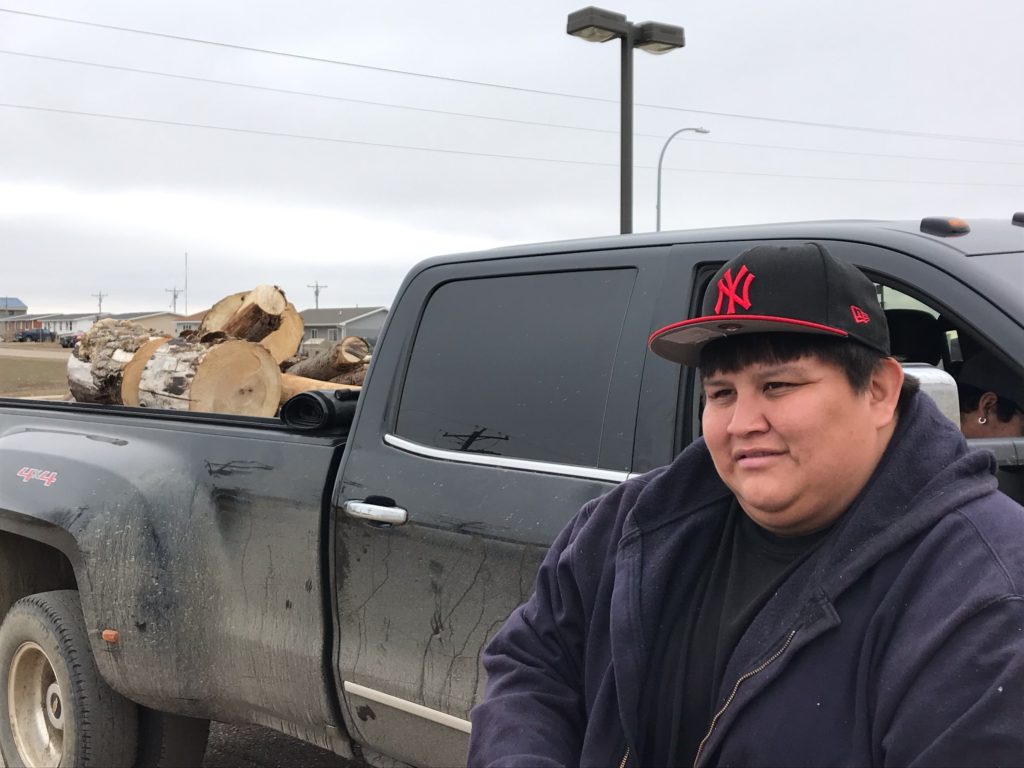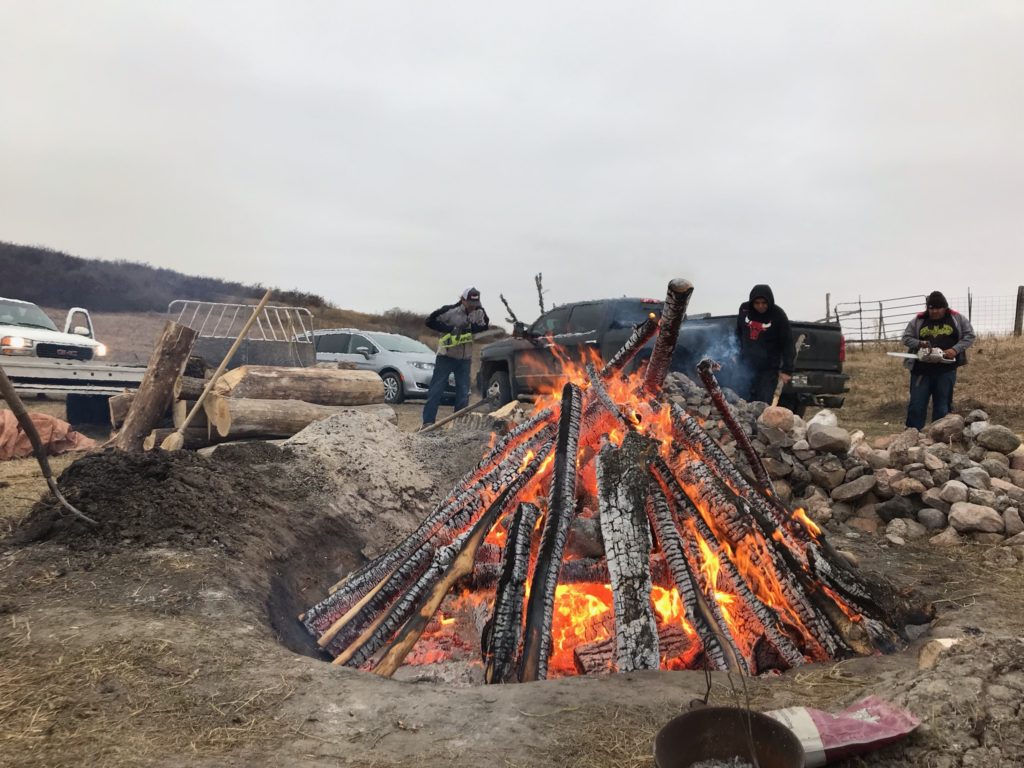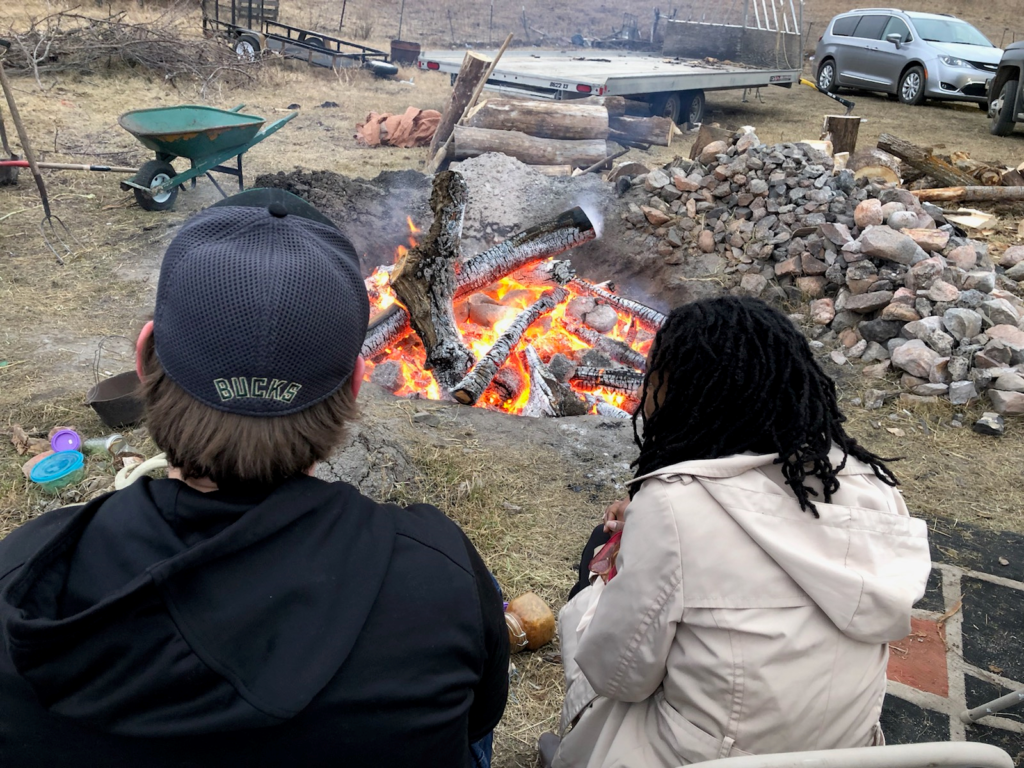It was a cloudy and cold day in Mandaree. There was a silence, despite vehicles being out and about on the streets. Only the sound of the wind could be heard driving through the small North Dakota reservation town.
There is a sign when entering Mandaree that says it’s the heart of the MHA Nation. MHA stands for Mandan, Hidatsa and Arikara a trio of tribes brought together by small pox outbreaks in 1792, 1836 and 1837.
The gas station located in the small town has but two gas pumps. The inside has shelves that aren’t fully stocked and there’s a small pizza place inside. Since it’s the only gas station within a good 30-minute radius in a town without a grocery store, there are constantly members, and even non-members of the reservation, going in and out buying various items such as energy drinks and bags of chips.
However, it was a moment outside of the gas station when University of Wisconsin-Milwaukee student journalist Royce Podeszwa was told to approach a black Chevy pickup truck packed with stacks of wood in the back. That was the moment he was introduced to James Phelan.

Phelan is a proud Hidatsa who is committed to keeping his culture alive and well. Not only for his generation, but for future generations as well. James has high respect for the elders of the tribe. The culture and spirit they hold within them are very important to the people.
“The elders are our heartbeat of our people. If we lose the elders, we lose our language and our culture and our stories,” said Phelan.
Veterans are also very important to the tribe and especially to Phelan. He used very touching words to describe veterans.
“We really honor our veterans. They get forgotten a lot of times. If it wasn’t for their sacrifice, then we wouldn’t be here,” said Phelan.
After talking with Podeszwa for a short amount of time, Phelan felt compelled to invite the student journalists to join him in a sweat lodge.
“Something just told me to invite these guys. I’ve never invited non-native people to a sweat,” said Phelan.
A sweat lodge is a tradition that transcends recorded history. A sweat, as it’s commonly called, is practiced by many different cultures in many different forms across the globe. It’s a cleansing that promotes healing and purification.

The process begins with the heating of rocks in a fire. The rocks are heated for hours until they are glowing red. They are eventually placed inside of the sweat lodge a few at a time. After everyone has entered and the ceremony has begun, water is poured periodically on the rocks to create the steam.
The sweat Phelan was performing that night was a healing one, but the details to what occurred during the sweat will not be discussed. This is a sacred tradition that requires the upmost respect.
“It’s a beautiful thing to be Native American,” said Phelan.
Phelan believes there’s a negative feeling towards the tribe because of the oil as well as typical stereotypes that persists in the media.
“I want people to see us different than how the movies and books portray us,” said Phelan.
The area, where the sweat was held, was hilly in terrain. There were horses roaming free as well as cattle. Phelan, his family and friends have a huge fire set up heating up dozens of stones. They continually feed the fire with a cut-up tree that was in the back of their pickup truck.
There are oil wells seemingly surrounding the immediate area. One of the wells can be seen right over the hill. When the day became night, the light from the flares could be seen in several different directions.

The flares are fire stacks intended to burn off the natural gas. In order to get to the oil buried deep within the ground, the process of natural gas escaping must be done. Instead of containing the natural gas and using it, the gas is instead burned. The burning process is intended to save money, as it is less expensive to simply burn the gas off. Fort Berthold has these flares everywhere and they all came with the oil boom.
The oil boom began in 2008 and brought big changes to the area. Phelan believes it was by design that this blessing of change was brought to people.
“We lived in poverty for a long time. Maybe the creator saw that we needed help and maybe that was a blessing for us, but it came too fast,” said Phelan.
Phelan is referring to the rapid development of the area after the billions of barrels in shale oil were found underneath the reservation. Phelan believes there are many misconceptions about oil and how it’s affected the tribe.
“We’re an oil tribe, but we’re not all rich. We’re rich in history and our culture,” said Phelan.
After the sweat was over there was a long discussion about culture. About being the protectors of the Earth. Phelan’s brother had powerful words during this time.
“We’re the last line. We’re it. If something doesn’t change, we will all die in our lifetime. It will be the end,” said Phelan.
It was an incredible moment to be in. Taking in the culture and the spirituality. There are few feelings that can describe the moments that occurred during the sweat and after. It’s an experience the small group from UWM will never forget. And it’s very likely the experience made an impact on their lives.